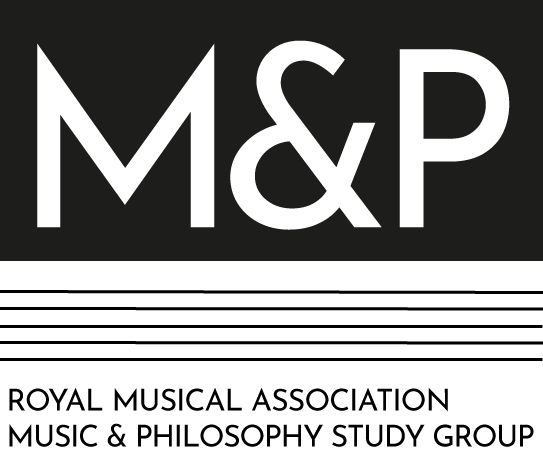Sixth International Symposium on Music/Sonic Art: Practices and Theories
MuSA 2015 – Karlsruhe (IMWI)
25-28 June, 2015
Hochschule für Musik, Karlsruhe –
Institut für Musikwissenschaft und Musikinformatik (IMWI)
Am Schloss Gottesaue 7, 76131 Karlsruhe
FIRST CALL FOR PAPERS:
We are pleased to announce the Sixth International Symposium on Music and Sonic Art: Practices and Theories (MuSA 2015), an interdisciplinary event to be held in Karlsruhe, Germany at the Institut für Musikwissenschaft und Musikinformatik (IMWI) (http://www.hit-karlsruhe.de/hfm-ka/imm/). MuSA 2015 is also supported by Middlesex University, London. The dates of the Symposium are 25-28 June, 2015.
Proposals for sessions and individual papers for the Sixth International Symposium on Music and Sonic Art: Practices and Theories are invited from academics, independent researchers, practitioners and post-graduate students. Presentation formats include academic research papers (20 minutes + 10 minutes for discussion); reports on practice-based/artistic research
or educational programmes (20 minutes + 10 minutes for discussion); and workshops, panel sessions, lecture-demonstrations (30 minutes + 15 minutes for discussion). The Symposium committee encourages presentations in which practice forms an integral part of the research. All proposals will be ‘blind’ peer-reviewed. The Symposium language will be English. Previous themes and topics can be seen at: musa2012.zilmusic.com, musa2013.zilmusic.com, musa2014.zilmusic.com
THEME AND TOPICS:
The principal aim of MuSA 2015 is to advance interdisciplinary investigations in – as well as between – music and sonic art. Following the success of MuSA 2014 in opening up interdisciplinary debate on the role of embodied approaches, MuSA 2015 will continue to probe this research area through the Symposium theme: Exploring embodiment in music and sonic art.
We invite submissions on the following, and other related topics:
· Body movement and emergence of meaning;
· Embodied approaches to creativity;
· Kinematics and haptics as background for music and sonic art
research;
· Gesture and expression;
· Methods for embodied analysis;
· Phenomenology of the performing body;
· The body within socio-cultural contexts of music and sonic art;
· Pedagogical contexts for embodied approaches to music and sonic art;
· The body in interpersonal sound-based communication;
· Ecological, biological, neuroscientific and evolutionary approaches
to embodiment;
· Historical roots of embodied approaches in theory and practice;
· Technology and embodiment;
· Artificial intelligence and embodiment;
· Critical discourses of embodiment in practice and research;
· Embodied aesthetics;
· Embodiment in collaborative research;
Other topics that are in line with the Symposium’s broad aim of promoting interdisciplinary research within and across Music and Sonic Art will also be considered.
In addition, MuSA 2015 will devote one day to the specific theme: Re-thinking the Musical Instrument
Within the thriving discipline of musical performance studies, there is a general tendency to speak of ‘the performer’ as an abstract category without taking into account the kind of musical instrument that mediates the act of music making and music as a temporally emergent, sounding phenomenon. In reality, different kinds of musical instruments involve
different expressive means (and at times different expressive/artistic aims), engender different phenomenologies of performance making, and generate different kinds of performer identities. The nature of the embodied interaction with different instruments in composition and performance, and the expressive and communicative meanings that emerge as a
result of such interaction constitute a largely unexplored research territory.
Some of the topics that will be explored include:
· The acoustical, musical, cultural, symbolic, and ritualistic
qualities of musical instruments and the relationships between these
(theoretically) distinct kinds of qualities;
· The discourses that exist in relation to musical instruments in
different genres, styles and traditions;
· The gestural affordances and ergonomic principles of musical
instruments and the musical meanings that emerge as a result of these
affordances and principles;
· Performers, improvisers and their instruments: phenomenologies of
music making in the context of particular kinds of musical instruments;
· Composer and instruments: the material, acoustical and expressive
qualities of instruments and their relationship to musical languages
composers create;
· Relationships between creativity in performance, nature of musical
interpretation and musical instruments;
· The role of the musical instrument in the creation of musical
identities;
We invite proposals on any research area related to the nature and use of western acoustical instruments, traditional ethnic instruments and digital/virtual instruments.
ABSTRACT FORMAT:
Please submit an abstract of approximately 250-300 words as an e-mail attachment to musa2015@btinternet.com
Please specify whether you wish your abstract to be considered for the one-day ‘Re-thinking the musical instrument’ event.
As contributions will be ‘blind’ peer-reviewed, please do not include information that might facilitate identification from the abstract. In addition, please include separately the name(s) of the author(s), institutional affiliation (if any) and short biography (approximately 100
words). Deadline for the receipt of abstracts is Monday, 27 April 2015. Notification of acceptance will be sent by 8 May.
REGISTRATION:
The Symposium fees are: €120 for delegates (day rate: €40), €100 for presenters (day rate: €35), and €60 for students and others who qualify for concessions (day rate: €20).
If additional information is required please do not hesitate to contact Prof. Dr. Mine Doğantan-Dack or any member of the symposium committee:
Prof. Dr. Mine Doğantan-Dack (University of Oxford) –
mine.dogantan-dack@music.oxford.ac.uk
Prof. Dr. Thomas A. Troge (IMWI, Karlsruhe) – troge@hfm.eu
Prof. Dr. Denis Lorrain (IMWI, Karlsruhe) – lorrain@hfm.eu
Prof. Dr. Paulo Ferreira-Lopes (Universita Cattolica Porto/ HfM-Karlsruhe)
– pfl@hfm.eu
Prof. Miroslav Spasov (Keele University, Music Department) –
m.spasov@keele.ac.uk
Dr. John Dack (Middlesex University, Art & Design / Science & Technology) –
j.dack@mdx.ac.uk
Adrian Palka (Coventry University) – arx110@coventry.ac.uk
Timothy P. Schmele (IMWI, Karlsruhe) – t.schme@gmail.com
Administrative support: Gundi Rössler (IMWI, Karlsruhe) – roessler@hfm.eu



